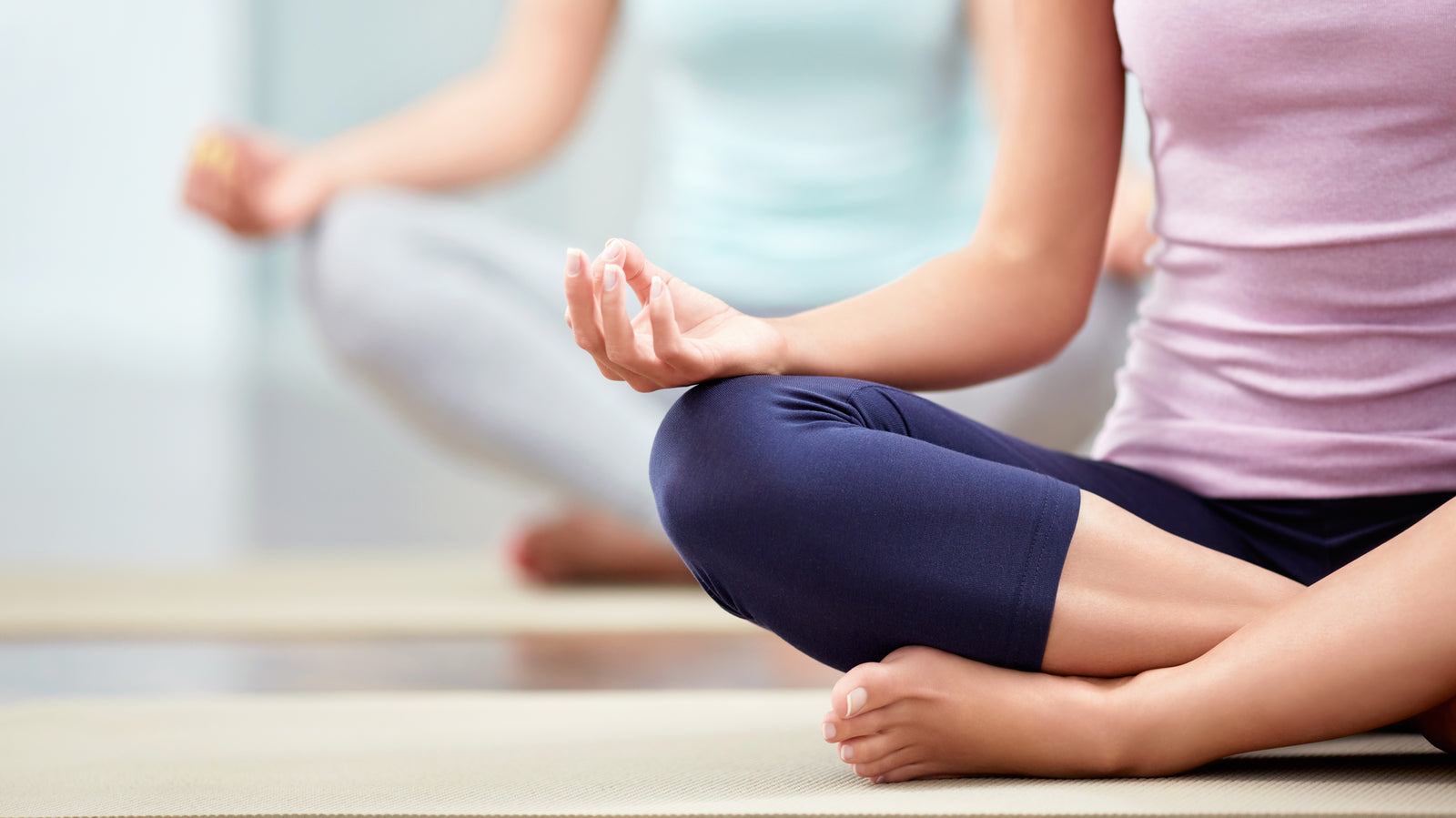Your Cart is Empty

Why ask this question? Well, we feel that it's a good idea to seek information from multiple outlets to gain new perspectives. It's great to learn new things.
We believe that chronic pain should be attacked from multiple angles such as with movement, mindset, and nutrition (find the whole roundup of experts here).
Here is what Holly Dalton, a certified yoga instructor, had to say about this question:
"Yoga used to be just a workout for me, now it is a lifestyle.
A big misconception when we hear the words "chronic pain" is that the root of it comes from past injuries, diseases, and other physical ailments. While this can be true, yoga and science agree that mental illness, stress, anxiety, and trauma have also been linked to chronic pain.
Years ago, I was a victim of an assault for the first time in my life. I started experiencing stress, anxiety and my body just hurt all over. I immediately assumed I was physically still hurt from the assault, however, besides some bumps and bruises the chronic pain went much deeper than the physical injuries. I had been diagnosed with PTSD (Post Traumatic Stress Syndrome) from this particular past trauma and it was causing me to experience chronic pain.
The doctors had bandaged up my broken ribs, stitched my open wounds and gave me medicine to help with the pain for the soreness - but when that was all healed why was I still feeling so much pain?
The trauma, stress, and anxiety from the assault indeed took a "toll" on my overall wellness. Sure, the doctor wanted to give me anti-depressants and anxiety medication - but I couldn't help but wonder if that was just a "temporary" fix to a long-term problem.
What could I do? Could this be fixed?
I had been practicing yoga for about seven years, but I was using it merely for a workout - you know, to tone up, stretch my muscles, etc. Then I started to really understand what yoga meant to me, it meant using my breath, and different poses or tapping into my "chakras" as tools to calm my mind, my stress, and my anxiety whenever I felt triggered and the pain would not cease.
My doctor used the word "neuroplasticity" to describe what was going on, meaning my brain was relating back to the trauma and causing these negative effects on my nervous system. In yoga we use the term "samskaras", these are memories in our mind and body that we are experiencing in the present moment. Not all samskaras are negative - negative actions create negative samskaras, alternately, positive actions create positive samskaras. Needless to say, I was experiencing the negative samskaras from my past trauma, causing me to have chronic pain.
Okay, so I decided to integrate my yoga practice into more than just my morning daily exercise routine, after all, it was engraved in my head that "yoga is the union of body and mind".
And my transformation began.
Through research and talking to other yoga enthusiasts, I learned that I could positively change my life without medication for my anxiety, thus healing or reducing my chronic pain. I started with deep breathing exercises, the Sanskrit name for this type of breathing is called "Ujjayi breathing", also known as "ocean breathing" and "victorious breathing", victorious it truly is. My daily efforts to calm my brain by this deep breathing exercise became addictive. I would find myself practicing it throughout my day-at work-at home-at the grocery store-whenever I needed that calm feeling.
Taking it a step further, I learned that through specific poses, meditation, relaxation, and breathing, that my mind was able to handle and even prevent chronic pain. The body's normal defense for the mind is strong, it contains natural receptors called GABA that aid in reducing anxiety and stress. By executing my yoga plan for calmness, I eventually found "my groove" and I was on the path back to a happy life.
What happened next was life changing
Through this very difficult time, I learned something…Yoga works! I was so excited that finally, I was beginning to return to my natural state of well-being. This transformation initiated a strong desire within me to become a Yoga Instructor - to help others who were dealing with chronic pain, trauma, anxiety, and stress.
I now teach seniors that are dealing with chronic pain, and to patients in mental facilities that have been diagnosed with a mental disorder or have extreme anxiety and stress. One of the most important, yet most difficult things I teach, believe it or not, is a relaxation pose. Yes, you read that right, teaching a person to learn to relax is very challenging but necessary. The most common pose we use in yoga is called the Corpse Pose or Savasana (the Sanskrit name).
Over the years I have benefited greatly through my students by observing the transformation that yoga has played on their overall wellness. Yoga has become a lifestyle for them now. Although I cannot be there every day, they have taken techniques that they have learned and have been shown useful for their particular situation and they have incorporated those things into their daily lives.
Chronic pain is debilitating, finding the "root cause" of it can be difficult. However, no matter what the cause, if you can introduce a yoga routine into your day, even if it is only for five minutes and only consists of breathing, relaxing and meditation, you will notice an overall difference in the way you feel.
Yoga does work…give it a try and begin your path back to your natural state of well-being."